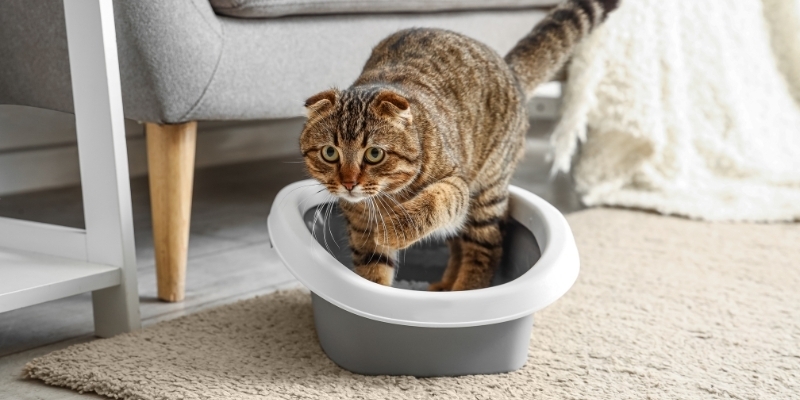One of the most common emergency issues seen in general veterinary practice is urinary disease in cats. In such cases, the critical point for our team to ascertain is whether the cat is simply having urinary-related discomfort or whether they are unable to pass urine (i.e. urinary blockage). Read on to learn more about urinary disease in cats and the symptoms to monitor your feline friend for.
Causes of urinary tract disease
Urinary tract disease in cats commonly occurs due to a condition called feline idiopathic cystitis (FIC), where cats develop bladder inflammation without infection. This condition is still not completely understood but is known to occur more often in cats susceptible to environmental stressors.
Cats may also develop urinary tract disease due to infection (more common in cats with an underlying problem such as kidney disease or diabetes), bladder stones, or bladder masses.
What symptoms does urinary tract disease cause?
Cats with bladder inflammation can show symptoms including:
- An increased urge to urinate, which may cause them to strain out small volumes of urine frequently or pass urine in unusual places
- Discomfort during urination
- Pink or red-tinged urine
- Increased licking at their genitals
When a cat develops urinary blockage, they become unable to pass urine and gradually develop a large, firm bladder, which is often painful to touch. They will become generally unwell and lethargic due to dehydration and the build-up of toxins within their body. Urinary blockage is most commonly seen in male cats (due to their narrower urethras).
What should I do if I notice symptoms of urinary disease in my cat?
Due to the discomfort and distress associated with urinary disease, cats showing symptoms should receive an assessment by a veterinarian.
However, urinary blockage is a true emergency and necessitates immediate veterinary treatment.
If you notice any symptoms of urinary disease in your cat, please phone us as soon as possible for further advice.

